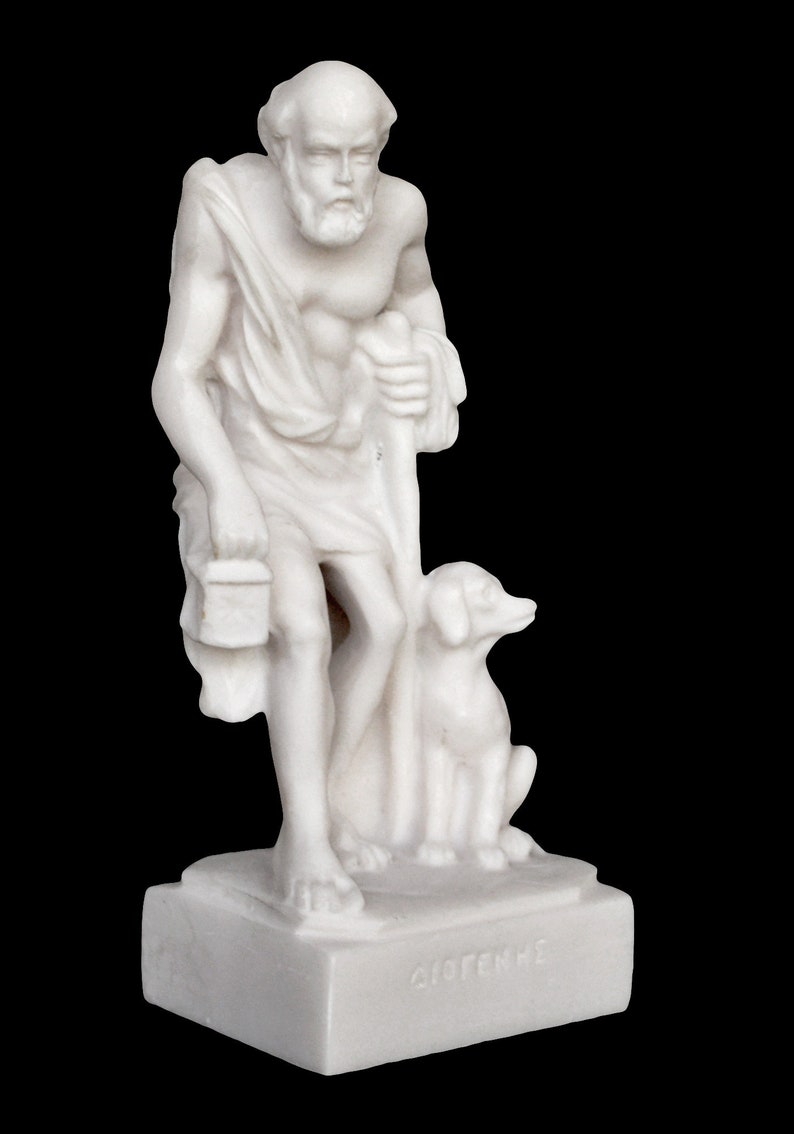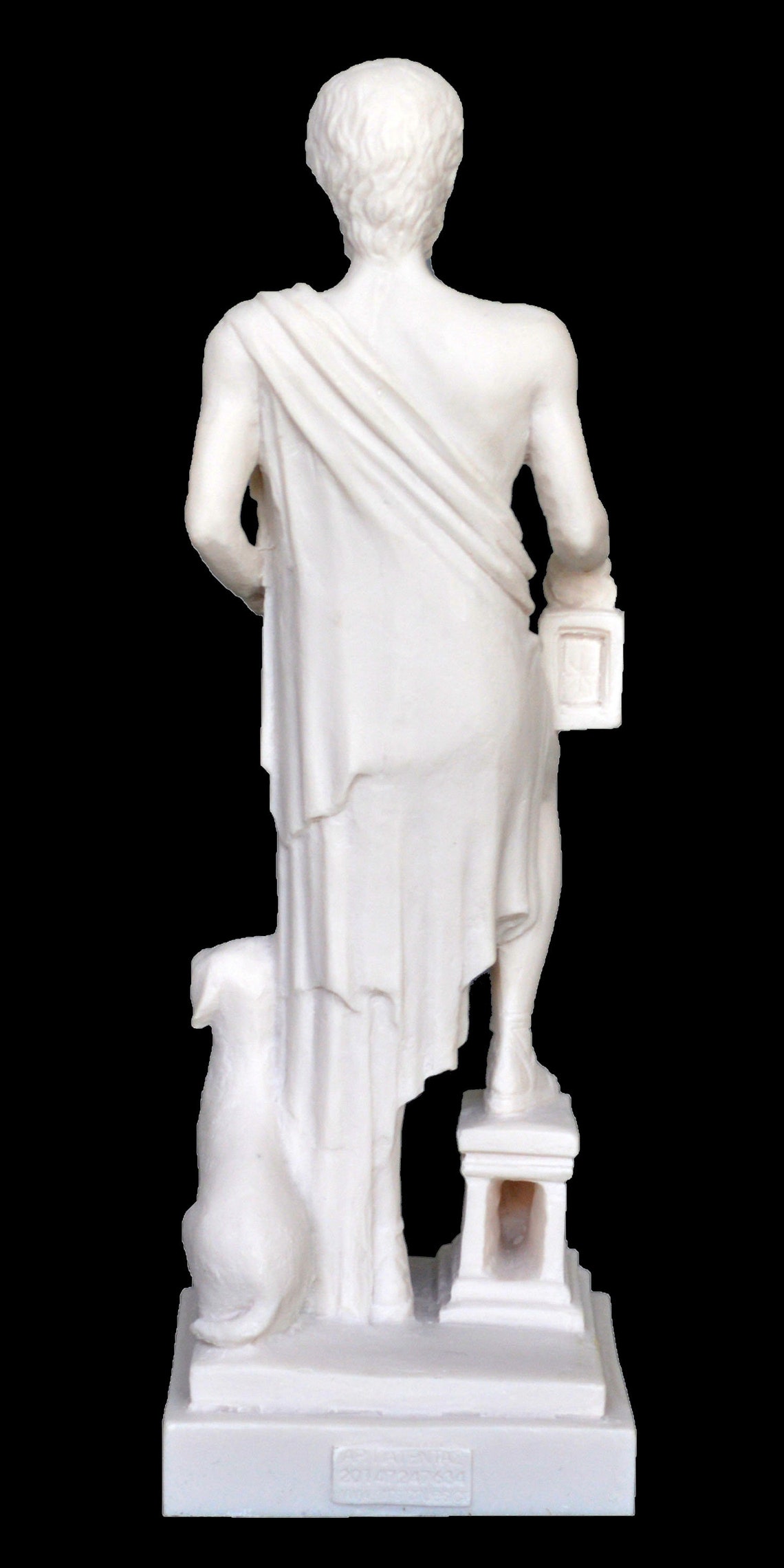


Diogenes, in particular, was referred to as the "Dog", a distinction he seems to have revelled in, stating that "other dogs bite their enemies, I bite my friends to save them." Later Cynics also sought to turn the word to their advantage, as a later commentator explained: It seems certain, however, that the word dog was also thrown at the first Cynics as an insult for their shameless rejection of conventional manners, and their decision to live on the streets.

The word cynosarges means the "place of the white dog". One explanation offered in ancient times for why the Cynics were called "dogs" was because the first Cynic, Antisthenes, taught in the Cynosarges gymnasium at Athens. The term cynic derives from Ancient Greek κυνικός (kynikos) 'dog-like', and κύων (kyôn) ' dog' ( genitive: kynos). By the 19th century, emphasis on the negative aspects of Cynic philosophy led to the modern understanding of cynicism to mean a disposition of disbelief in the sincerity or goodness of human motives and actions. Cynics could be found begging and preaching throughout the cities of the empire, and similar ascetic and rhetorical ideas appeared in early Christianity. He was followed by Crates of Thebes, who gave away a large fortune so he could live a life of Cynic poverty in Athens.Ĭynicism gradually declined in importance after the 3rd century BC, but it experienced a revival with the rise of the Roman Empire in the 1st century. Diogenes took Cynicism to its logical extremes, and came to be seen as the archetypal Cynic philosopher. He was followed by Diogenes, who lived in a ceramic jar on the streets of Athens. The first philosopher to outline these themes was Antisthenes, who had been a pupil of Socrates in the late 400 BC.
DIOGENES CYNIC FREE
Instead, they were to lead a simple life free from all possessions. As reasoning creatures, people can gain happiness by rigorous training and by living in a way which is natural for themselves, rejecting all conventional desires for wealth, power, and fame, and even flouting conventions openly and derisively in public. For the Cynics, the purpose of life is to live in virtue, in agreement with nature. The scroll in his right hand is an 18th-century restoration.Ĭynicism ( Ancient Greek: κυνισμός) is a school of thought of ancient Greek philosophy as practiced by the Cynics ( Ancient Greek: Κυνικοί Latin: Cynici). This statue is a Roman-era copy of an earlier Greek statue from the third century BC. Statue of an unknown Cynic philosopher from the Capitoline Museums in Rome.


 0 kommentar(er)
0 kommentar(er)
